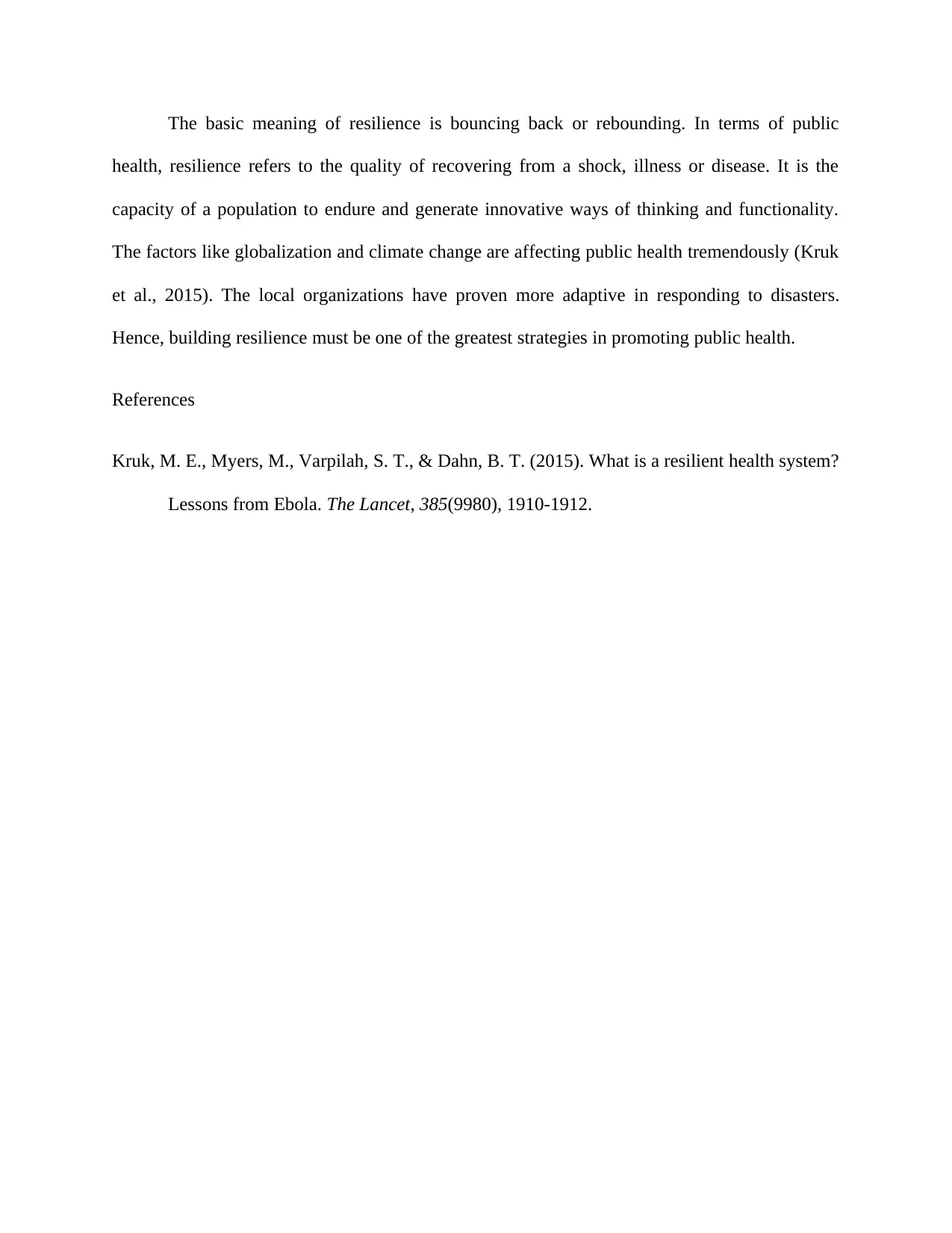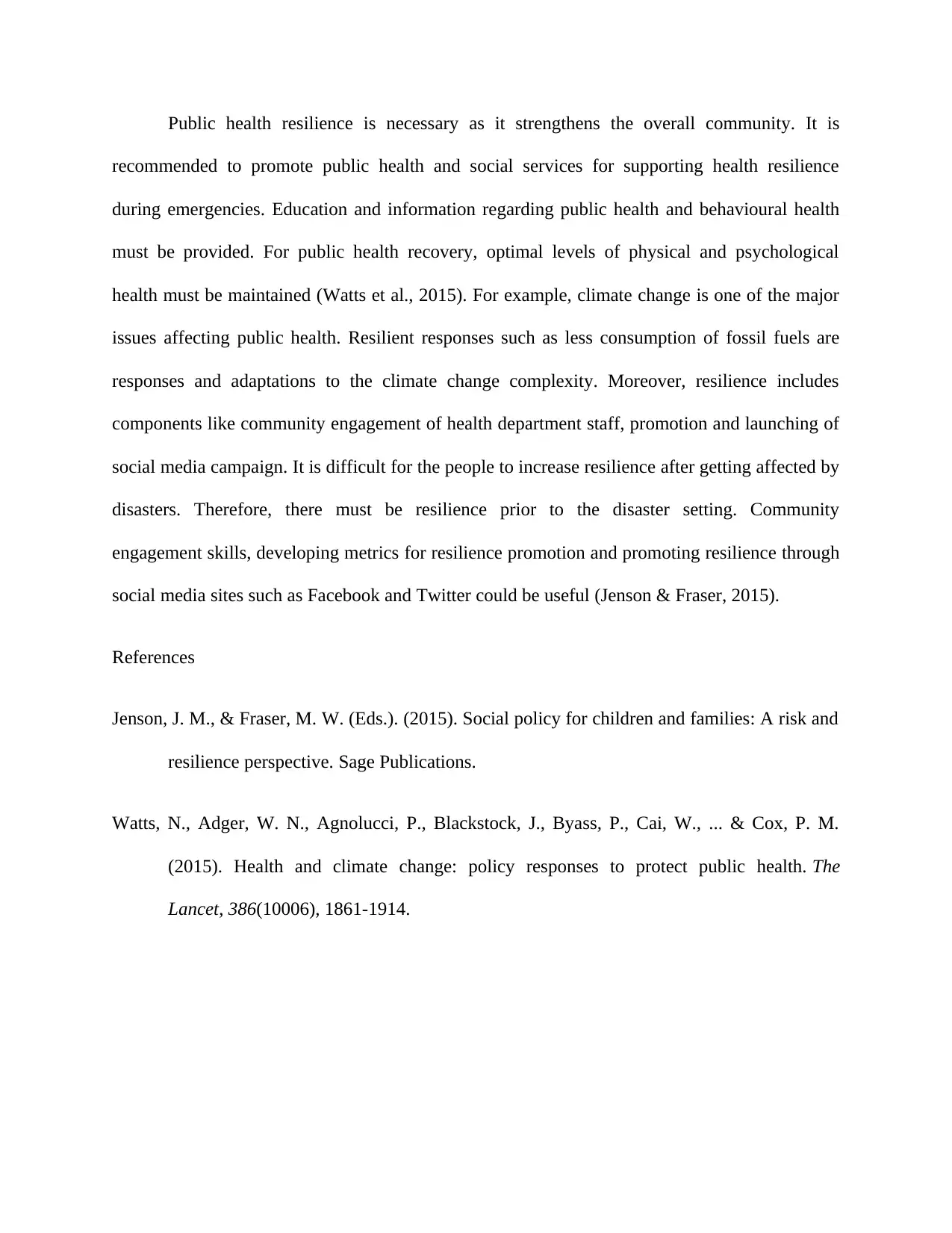Public Health Resilience: Strategies, Challenges, and Solutions
VerifiedAdded on 2021/06/18
|2
|415
|61
Homework Assignment
AI Summary
This assignment delves into the critical concept of public health resilience, emphasizing the ability of communities to adapt and thrive in the face of challenges like climate change and disasters. It highlights the importance of proactive strategies, such as community engagement, social media campaigns, and promoting health and social services. The assignment stresses the need for resilience before crises, offering practical suggestions like developing metrics for resilience promotion and leveraging social media for public health initiatives. Key topics include the impact of climate change on public health, the role of education in promoting resilience, and the significance of maintaining optimal physical and psychological health. The assignment also references relevant research and publications, providing a comprehensive understanding of how to build and sustain resilient public health systems.
1 out of 2







![[object Object]](/_next/static/media/star-bottom.7253800d.svg)